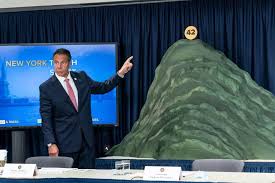
Introduction
Andrew Cuomo, the former Governor of New York, has been a significant figure in U.S. politics for over a decade. His leadership during the COVID-19 pandemic and subsequent controversies surrounding allegations of misconduct have highlighted both his strengths and weaknesses as a political leader. In understanding his journey, it is essential to consider his impact on state governance and the broader implications for political accountability.
The Rise of Andrew Cuomo
Cuomo’s political career began in the early 1980s, and he held various roles, including Assistant District Attorney in New York and Secretary of Housing and Urban Development under President Bill Clinton. He became the 56th Governor of New York in 2011. His administration focused on economic development, education reform, and healthcare improvement, which garnered him substantial recognition.
COVID-19 Response
Cuomo received national acclaim for his management of New York during the COVID-19 pandemic in 2020. His daily press briefings gained a large viewership, and he was praised for his transparency and articulate communication. He authored a book titled ‘American Crisis: Leadership Lessons from the COVID-19 Pandemic’ that discusses these experiences. However, the praise was short-lived as his handling of nursing home policies during the pandemic became a matter of intense scrutiny.
Allegations and Resignation
In 2021, multiple women accused Cuomo of sexual harassment, leading to widespread calls for resignation from various political figures, including President Joe Biden. An investigation conducted by the New York Attorney General’s office concluded that Cuomo had indeed sexually harassed multiple women and created a hostile work environment. Facing mounting pressure and an impending impeachment process, Cuomo announced his resignation on August 10, 2021.
Conclusion
Cuomo’s political journey serves as a potent reminder of the complexities of leadership and accountability in governance. With his resignation, discussions have emerged regarding the implications for future leaders in terms of ethical behavior and transparency. While some may remember him for his impressive handling of a global crisis, others will focus on the serious allegations that led to his downfall. Going forward, Cuomo’s legacy will likely influence how political figures manage crises and accountability in service to the public.



